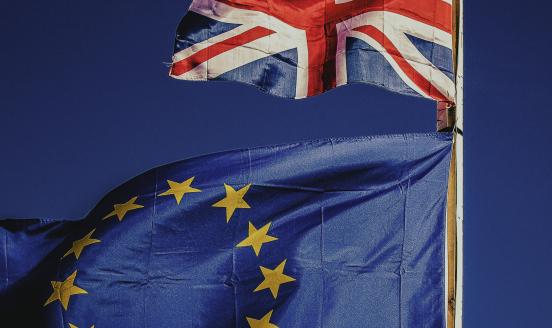The UK / EU separation: how fast does it happen?
Up until the British rebuff on 23 June 2016, the European Union had always been in expansion mode, also known in EU parlance as enlargement. The UK vo
In the past, there have been a number of situations where a country could be outside the union legally, but inside politically. It was common practice in the early 2000s to invite ex-Communist candidate countries to attend votes in the Council of the EU in anticipation of their formal accession in early 2004. Yet in this case, a country, the United Kingdom, is inside the EU legally, but now firmly outside of it politically. From now on, the EU will routinely hold substantial intergovernmental discussions without the UK being represented, even though the formalities of membership will be maintained in parallel.
An additional layer of complexity derives from the fact that two component parts of the UK, Northern Ireland and Scotland, seek to remain politically inside the EU even though, for the moment, they remain legally tied with England and Wales. Nicola Sturgeon, Scottish First Minister, declared immediately after the Brexit vote, that “Scotland voted overwhelmingly to remain in the EU” and that “Scotland faces the prospect of being taken out of the EU against our will. I regard that as democratically unacceptable. (…) Starting this afternoon, [Scottish] ministers will be engaged in discussions with key stakeholders – particularly in the business community – to emphasise that as of now we are still firmly in the EU. (…) Scotland has voted to stay in the EU – and (…) I intend to discuss all options for doing so.”
In a strictly legal sense the referendum of June 23 is binding neither on the UK nor on the EU. In the UK, Parliament has supreme authority, but it is highly unlikely to reverse the mandate delivered by the voters. In the EU, the procedure for separation is set out in some detail in Article 50 of the Treaty on the European Union (TUE), and places the responsibility for initiating the process in the hands of the relevant member state’s government: ”A Member State which decides to withdraw shall notify the European Council of its intention.”
Article 50 TUE further implies that the government’s notification to the EU sets a clock ticking, which incentivizes the parties to find an agreement on the terms of separation within the following two years. If no such agreement is found after those two years, and in the absence of unanimity of all EU member states to extend the negotiation period, the EU membership of the member states is terminated automatically, which would be so disruptive for the country concerned that any sane government is expected to work hard to find mutually acceptable terms.
A key question for the UK, therefore, is this: when does its government notify its decision to withdraw under Article 50 following the vote on June 23? Prime Minister David Cameron explained in February at the House of Commons that “the British people would rightly expect that to start straight away” after a vote to leave. In his resignation speech, however, Mr Cameron made it clear that he would leave that notification on the to-do-list for his successor, probably not before the end of summer. “In my view we should aim to have a new prime minister in place by the start of the Conservative Party conference in October,” he declared. “A negotiation with the European Union will need to begin under a new prime minister and I think it's right that this new prime minister takes the decision about when to trigger Article 50 and start the formal and legal process of leaving the EU.”
By contrast, a joint statement of the heads of all relevant EU institutions on June 24 asked for the negotiation to start quickly: “We now expect the United Kingdom government to give effect to this decision of the British people as soon as possible, however painful that process may be. Any delay would unnecessarily prolong uncertainty. We have rules to deal with this in an orderly way. Article 50 of the Treaty on European Union sets out the procedure to be followed if a Member State decides to leave the European Union. We stand ready to launch negotiations swiftly with the United Kingdom regarding the terms and conditions of its withdrawal from the European Union.”
Among other concerns, the EU institutions’ leaders want the consequences of leaving to be clear and unambiguous to all. They understandably fear that a membership referendum may be pressed in other member states on the questionable premise that exit can be almost painless, as the UK Leave campaign has argued. They thus desire to establish the actual precedent as quickly as possible. It is too early to prejudge the outcome of such negotiation, of course. One may expect the EU stance to be not punitive, but unforgiving.
In practice, there is little the EU can do now to force an acceleration of the notification process. Article 50, as quoted above, leaves no room for interpretation as to how the process will be triggered. So the EU will have to wait until the domestic political consequences of the vote are sorted out in the UK before the actual business of negotiation can actually start. Just as during the referendum campaign, the EU institutions and all other member states must for the moment remain the spectators of a dramatic development in which they have a huge amount at stake.



